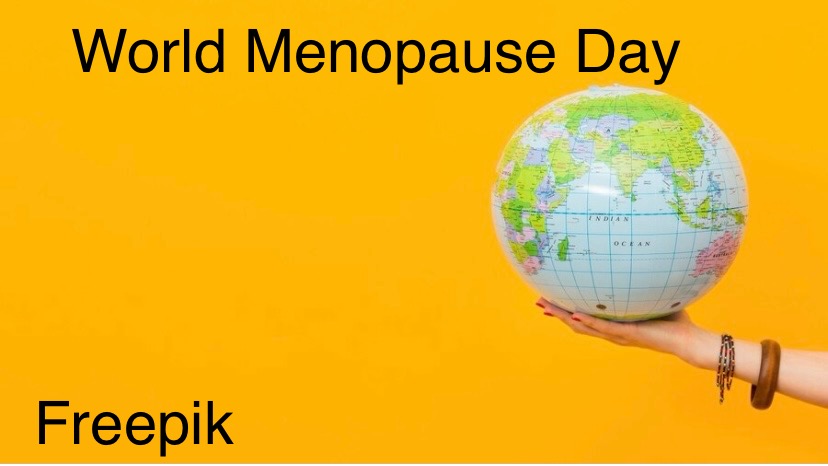World Menopause Day. Friday 18th October


Menopause and MHT in 2024: addressing the key controversies – an International Menopause Society White Paper. Nick Panay, Seng Bin Ang et al.
Climacteric 27, 2024.
Leading up to World Menopause Day, The International Menopause Society published this article. They are stressing that all women should have access to evidence-based healthcare to decide if HRT is for them. The more informed women are, the better decisions they make to improve their health. They call it the 5 “W”; Who, What, When, Why and Where. This is a summary.
Best Evidence.
We must follow the latest research that is published from the International and British Menopause Society, ensuring women we support are receiving up to date advice, HRT and management.
Who is HRT for?
• Most women have menopausal symptoms that affect their quality of life but what if you have no symptoms at all?
• HRT isn’t prescribed or licenced for the prevention of long-term health conditions. If you don’t have menopausal symptoms HRT shouldn’t be prescribed.
• HCP qualified in menopause care, who prescribe HRT will assess every woman individually. Prescribing HRT is based on local guidelines, the prescriber’s competence, your personal health and your choice. However, it is very rare that women won’t have some menopausal symptoms.
• If you’ve had certain types of hormone cancer, hormones are rarely an option but there are other medications and lifestyle changes that can help reduce your symptoms.
What types of HRT?
The route, dose and types of HRT are dependent on many factors.
• If you have a womb, you will need Progesterone and Oestrogen.
• Contraception is an important factor and a progesterone intra uterine device (IUD) can be used as part of your HRT and for contraception. They are effective up to 5 years.
• Decisions about HRT maybe related to your lifestyle or health. if you are a shift worker and won’t have time to apply gels, a patch is quick and maybe more convenient.
• Your own personal health will be a factor and choices maybe more limited.
When to start or Stop?
• Ideally HRT should be started within 10 years of the menopause but it can be prescribed to women over 60 and younger women too. Women frequently say they have been dismissed by healthcare professionals (HCP) as being “too young” and other women are told they are “too old” to start HRT.
• If you’ve had Gynae surgery or have Premature Ovarian Insufficiency or menopause under the age of 40, you often need hormones at a younger age.
• When should you stop HRT? Some women may stop after 5-10 years of treatment while others are healthy and choose to take HRT in their 60’s and beyond.
Why is it important?
• I often hear people say why do women need HRT, years ago women didn’t take any hormones. But now we understand how low or no female hormones impact our emotional wellbeing and physical health. Although many years ago women didn’t take HRT, lives were very different. We ate unprocessed foods, ate vegetables from the garden, took more exercise and life was more basic and simpler. But were women happier? Or did they just accept it was normal to feel very low, no have libido and be exhausted all the time?
• In more recent years there is much debate that health professionals have over medicalised the menopause. After all it is a completely normal transition.
• Women shouldn’t feel guilty or pressured to take HRT or to decide it’s not for them. Choice is so important.
Where can you get HRT?
• Recently ladies who live abroad have reached out asking for my menopause and HRT support, as there is little advice, HRT prescribing or support in their own country. This demonstrates the inequalities in their country. The UK provides a good standard of menopause support, that women in other countries just don’t have.
• In the UK most women go to their local GP surgery.
• Concerningly women who live in lower socio-economic areas are less likely to be prescribed HRT or prescribed a type that may not be most suitable.
• When prescribing, HCP will discuss risks, benefits and expected side effects of HRT. Being fully informed is vital.
• Private menopause services are everywhere, and it can be difficult knowing who is competent and qualified to discuss HRT with you. Only discuss HRT with a senior nurse, GP or pharmacist.
Bourne2care.
Bourne2care gives women time, they explain, listen, reassure and women have confidence in Diane. Bourne2care is a nurse led private service, registered and regulated with the CQC and Diane has years of experience and qualifications in menopause, pharmacology and women’s health.
Take Home Tips.
• Many GP surgeries have HCP trained in menopause.
• Most women can have HRT.
• HRT is safe and effective for most women.
• Always take HRT as it’s been prescribed. If you’re unsure speak to your prescriber.
• Private Menopause Services like Bourne2care provide evidence based individualised menopause care.
• Exercise, maintaining a healthy weight, eating a balanced diet, reducing alcohol and not smoking will help improve your health now and in the future.




